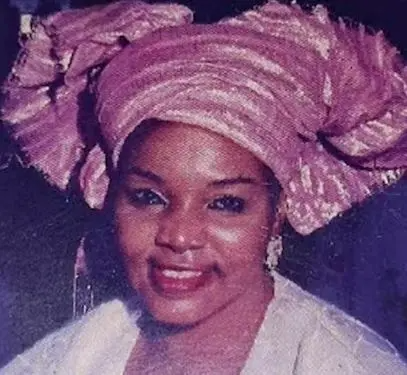The first female Senator in Nigeria, Senator Franca Afegbua, has died at the age of 81.
She passed on yesterday in Benin City, Edo State in a private hospital after battling with undisclosed ailments in the last few months.
Her death was confirmed by Kassim Afegbua, one of her younger brothers, a journalist who served as a commissioner for information in Adams Oshiomhole administration in Edo State and currently a member of the Tinubu’s Presidential Campaign Council.
He said her sister died yesterday morning and that her body has been taken to the University of Benin Teaching Hospital (UBTH) mortuary.
The late Franca Afegbua hailed from Okpella in present day Etsako East local government area of State. She was born in 1942 in the royal and Afegbua dynasty and was elected on the platform of the defunct National Party of Nigeria (NPN) in 1983 as a senator to represent the then Bendel North Senatorial District.
She served in the upper chamber of the National Assembly from October to December 1983 before the Buhari military coup terminated the Second Republic on December 31, 1983.
The story of Franca Afegbua is nothing short of inspiring.
From running a premium beauty salon in Lagos, winning an international hairdressing competition in London, she went on to become the first elected female senator in Nigeria.
Afegbua made history when she contested and won the Bendel North Senatorial District seat in the 1983 elections in a political atmosphere dominated by men, not very different from what obtains today. Running for office on the platform of the NPN against the incumbent at the time, a seasoned politician from the opposition Unity Party of Nigeria in control of old Bendel State (present-day Edo and Delta States), Afegbua showed that women support women in politics.
It should be noted that since the general elections of September 1983 when Senator Franca Afegbua was elected the first female Senator in Nigeria, the electoral fortune of women has not seen a dramatic improvement.
The number of elected women in Nigeria’s politics remains abysmally low. This has led to serious advocacy and demands for special measures to be taken to increase women’s representation in elective offices.
Recent constitutional amendment efforts to increase the number of women in the federal and state legislatures failed to pass, leading to public outcry. Calls have continued on the need to revisit the bill to be able to catch up with the global trend of improving the participation of women in governance and politics.





